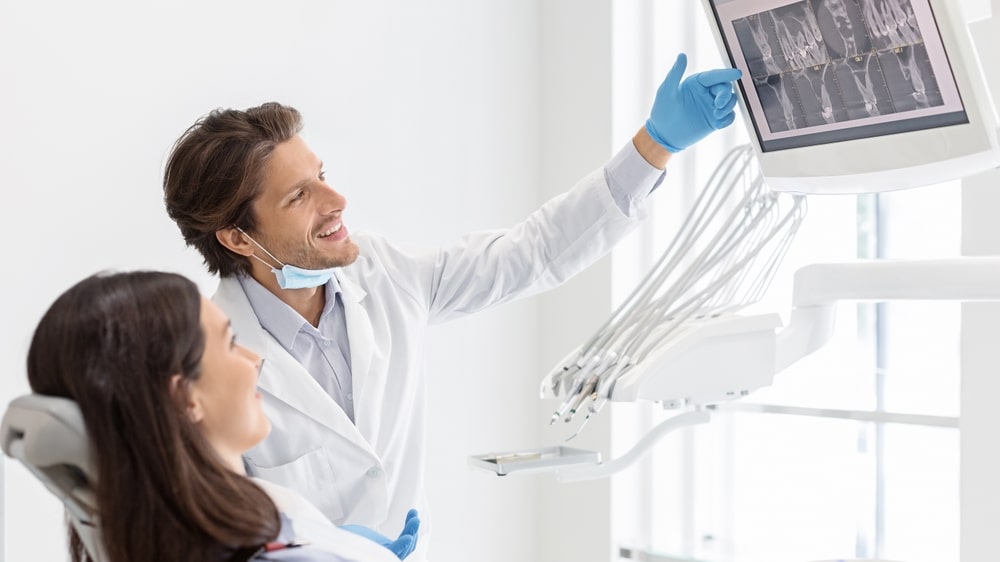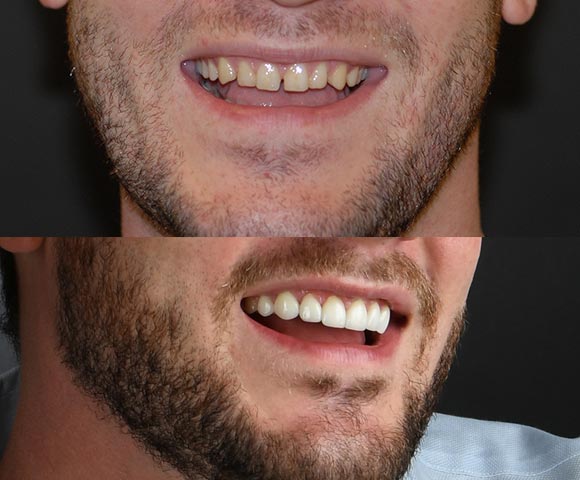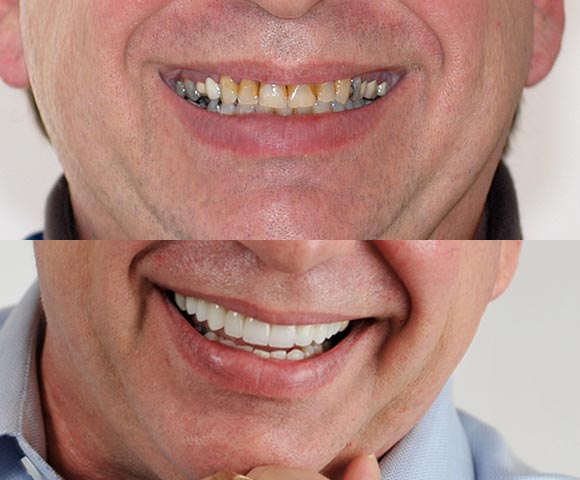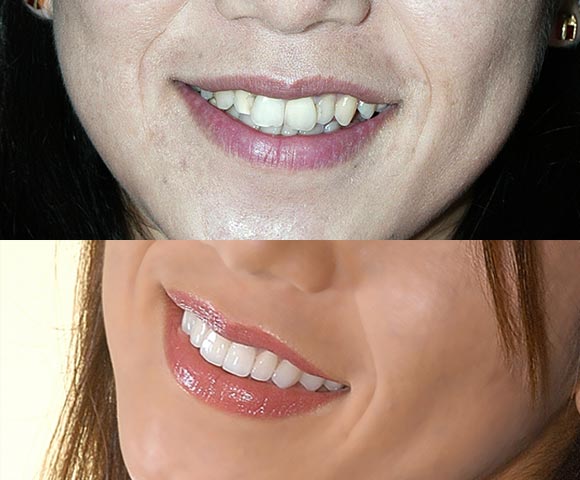Full mouth rehabilitation is a customized approach that addresses multiple oral health concerns by reconstructing the upper and lower teeth to create a functional, balanced, and aesthetically pleasing smile. Whether you're dealing with widespread decay, missing teeth, or bite misalignment, this comprehensive treatment plan is designed to restore your dental function and appearance through precise, personalized care.

At the heart of this approach is Dr. Ned Shimizu, one of only two dentists in Houston — and just 85 worldwide — who is recognized as an Accredited Fellow by the American Academy of Cosmetic Dentistry (AACD). His training includes a DDS from Hiroshima University and Loma Linda University, as well as extensive experience in prosthodontics and aesthetic dentistry. This rare combination of advanced credentials and artistic vision enables Dr. Shimizu to perform sophisticated dental procedures that are both scientifically sound and aesthetically beautiful.
Full Mouth Rehabilitation Procedures
Full mouth dental restoration can be a complex and time-consuming process, and it may involve a variety of different procedures, such as:
- Dental crowns to cover and protect damaged teeth.
- Dental bridges to replace missing teeth.
- Dental implants to replace missing teeth with artificial roots.
- Orthodontic treatment to correct the misalignment of the teeth.
- Periodontal therapy to address gum disease.
- Oral surgery to remove teeth or repair jaw damage.
These procedures work together to restore form, function, and aesthetics in patients with multiple dental concerns.
The Role of Digital Imaging in Full-Mouth Rehabilitation
Modern full-mouth rehabilitation often relies on digital imaging to plan treatment with greater precision. Digital scans, X-rays, and 3D modeling help your dentist assess the structure of your teeth and jaws, design accurate restorations, and ensure the final results are aligned, functional, and natural-looking. This technology also minimizes guesswork, enhances comfort, and streamlines the process from consultation to completion.
How to Maintain Your New Smile After Full Mouth Reconstruction
Maintaining your results after full-mouth rehabilitation is essential to long-term success. Here are a few simple tips:
- Brush and floss daily with non-abrasive toothpaste and floss.
- Avoid biting hard objects, such as ice or pens.
- Wear a nightguard if you grind your teeth.
- Visit your dentist regularly for check-ups and cleanings.
Proper maintenance preserves both the health and appearance of your restored smile.
Comparing Full Mouth Reconstruction vs. Partial Dental Restoration
Not every patient needs a full-mouth rehabilitation. In some cases, a partial restoration may be sufficient to address localized issues. Here's a quick comparison:
- Full-mouth rehabilitation: A Comprehensive solution involving all teeth, suitable for patients with widespread damage or complex dental needs.
- Partial restoration: Targets specific teeth or sections of the mouth, ideal for patients with isolated concerns, such as a few missing or worn teeth.
Dr. Shimizu will assess your needs to determine which approach will yield the best outcomes.

The Psychological Benefits of Restoring Your Smile
Dental health isn’t just physical — it affects how you feel about yourself. Full-mouth rehabilitation can improve self-image, reduce anxiety in social situations, and increase your willingness to smile freely. Many patients find that restoring their smile not only changes how they look but also boosts their confidence and emotional well-being.
Frequently Asked Questions
What conditions qualify for full mouth rehabilitation?
Candidates may include those with multiple missing teeth, severe tooth wear, extensive decay, bite misalignment, or trauma.
How long does full mouth reconstruction typically take?
The timeline varies, but most treatment plans take several months to a year, depending on complexity and healing times.
What are the differences between crowns, bridges, and implants?
- Crowns cover damaged teeth.
- Bridges replace one or more missing teeth using adjacent teeth for support.
- Implants replace missing teeth with titanium posts anchored in the jawbone.
Is full mouth rehabilitation painful, and what is the recovery like?
With modern anesthesia and sedation, the procedures are generally comfortable. Recovery depends on the specific treatments performed and is usually manageable with mild discomfort.
Why Choose Us for Full Mouth Rehabilitation in Houston?
Choosing the right provider for full-mouth dental rehabilitation is crucial for achieving long-lasting, natural-looking results. Here's why patients choose Dr. Ned Shimizu:
- Accredited Fellow of the American Academy of Cosmetic Dentistry (AACD).
- One of only two AACD Accredited Fellows in Houston.
- DDS degrees from Hiroshima University and Loma Linda University.
- Over two decades of experience in aesthetic and reconstructive dentistry.
- Recognized by the AACD for award-winning smile design cases.
- Offers a blend of artistic vision and clinical expertise for balanced, lifelike results.
Our clinic is equipped to handle even the most complex cases with care, precision, and an unwavering focus on quality.
Rebuild Your Smile with Confidence
If you're ready to restore both the function and aesthetics of your smile, full mouth rehabilitation may be the answer. Call 281-531-0710 to book your consultation and take the first step toward a complete smile makeover.
Dental Services
Fix Spacing in Teeth Without Braces
Dental veneers can close gaps and make small teeth bigger.



